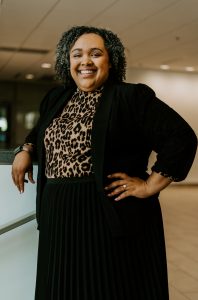Secondary Trauma: Implications for Clinicians
Date: 03/26/2020
Cost: $125
Location: Zoom Live Webinar
Treating survivors of trauma and adverse life experiences poses a risk for developing our own secondary trauma symptoms. Attendees of this workshop will complete self-assessments for secondary trauma symptoms and identify self-care plans for the management and prevention of burnout. This presentation will explore the impact of working with trauma survivors while experiencing secondary trauma symptoms, as well as how to conceptualize cases when working with clinicians as clients. A group protocol for secondary trauma will be introduced and discussed.
State of Ohio Counselor, Social Worker, Marriage & Family Therapists Board credits are pending.
If you need any specific accommodations, please contact Suzi Rutti at info@ohioinstitutefortraumaandwellness.com or (614) 398-1927.
*OTW remains committed to providing training that enhances the collective health and well-being of our community. In light of recent COVID-19 developments, we recognize that providers all across the state and country are potentially facing new financial realities. We would like to offer a 50% discount to anyone wanting to participate in this training but who is not able to afford the full amount due to loss of employment.
**You will receive instructions for dialing in to the webinar after registration.
Presenters:
Lisa Hayes, MSW, LISW-S is a Clinical Social Worker based in Columbus, OH. Lisa has owned her own private practice since 2011 and is a co-owner of the Ohio Institute for Trauma and Wellness, LLC. Lisa is a Certified EMDR Therapist and Approved Consultant through the EMDR International Association (EMDRIA). She is also a facilitator with The Institute for Creative Mindfulness and provides support for EMDR therapy Basic Training and Advanced Training topics in Central Ohio. Lisa graduated with a master’s degree in Social Work from The Ohio State University. Her undergraduate education is in Sociology and Gender Studies; her academic and professional focus has always included special considerations for issues of gender identity, sexuality, race and social representation. Her clinical experiences include work with complex trauma; complex PTSD; residential alcohol and drug treatment; inpatient psychiatric hospitalization; significant life transitions; racial/ethnic and culturally specific trauma and identity; LGBTQIA+ specific support needs; depression; complex dissociation; Military Veteran experiences; anxiety; sexual assault and childhood sexual abuse. Lisa’s clinical practice has primarily focused on the treatment of adolescents and adults.

Tammy Moore, MSW, LISW-S is a Clinical Social Worker based in Columbus, OH. Tammy graduated from Otterbein University with a Bachelor of Arts in 2001 and received her Master of Social Work from the Ohio State University in 2005. Tammy’s clinical experiences include work with complex trauma, including survivors of childhood abuse, survivors of sexual violence, veteran specific trauma, complex dissociation, and LGBTQ specific issues. Tammy is a certified EMDR therapist and consultant as well as an EMDR facilitator for The Institute for Creative Mindfulness. Tammy is currently working in private practice and at the Department of Veteran Affairs in Columbus, Ohio.

Suzi Rutti, MSW, LISW-S owns and operates the private practice group Rutti Counseling & Consultation, LLC in Columbus, Ohio. She is a co-owner of the Ohio Institute for Trauma and Wellness, LLC and the Central Ohio EMDR Connection, LLC. She is a Clinical Social Worker that specializes in the treatment of children, adolescents, and adults who have experienced trauma and other adverse life experiences. She believes in the importance of making high quality trauma treatment accessible to all communities, and integrates a mindfulness component into her clinical work. She has presented to numerous local and national audiences on a variety of topics relevant to the impact of trauma and how best to support survivors. Suzi is a faculty member with The Institute for Creative Mindfulness and provides EMDR therapy Basic Training and Advanced Training topics in Central Ohio. She provides clinical supervision and EMDR therapy consultation as an EMDRIA Certified Therapist and Approved Consultant to clinicians across the nation, and co-facilitates the Children Affected by Violence Task Force of Central Ohio.

Objectives:
-
- Identify 3-5 symptoms of secondary trauma and complete a self-assessment for secondary trauma symptoms.
- Describe 2-3 risks of working with trauma survivors while experiencing secondary trauma symptoms.
- Identify 2-3 strategies for self-practice and develop a self-care plan.
- Outline a group model for secondary traumatic stress and burnout in an agency setting using specific interventions.
- Identify 2-3 themes and potential negative cognitions for case conceptualization with clinicians presenting for treatment for secondary trauma.
Agenda:
Please note all times are EASTERN STANDARD TIME
-
- 8am-8:30am Registration
- 8:30am-9am Introductions and orientation
- 9am-10:30am Secondary trauma introduction: definitions/theory/implications
- 10:30am-10:45am Break
- 10:45am-12pm Risks of working while experiencing ST symptoms
- 12pm-1pm Lunch
- 1pm-2pm Self-care strategies and self-care planning
- 2pm-2:30pm Secondary Trauma: Awareness, Resilience & Support (STARS) Group Model
- 2:30pm-2:45pm Break
- 2:45pm-3:45pm Working with clinicians as clients
- 3:45pm-4pm Questions/wrap up
Cancellation Policy:
Cancellations must be received in writing one week prior to the training date in order to receive a full refund (less a $20 administrative fee). Cancellations within one week of the training will receive a refund in half the amount of the training. No-shows, leaving training early, and late cancellations are not eligible for a refund unless we receive documentation of a medical or bereavement emergency. You must attend the training in full in order to receive continuing education credit(s).